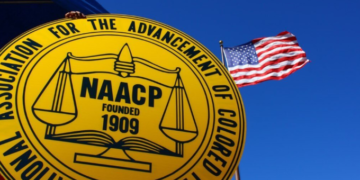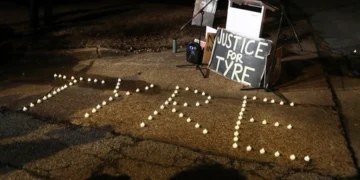May 15, 2025 Story by: Editor
A Louisiana Senate committee on April 29 advanced a bill that could open the door for some individuals convicted under the state’s now-defunct Jim Crow-era nonunanimous jury rule to challenge their convictions.
The legislation, Senate Bill 174, sponsored by State Sen. Royce Duplessis (D–New Orleans), cleared the Senate Judiciary C Committee on a narrow 3–2 vote and will now move to the full Senate for debate.
The bill seeks to provide a legal process for people still imprisoned based on convictions delivered by split juries—a practice outlawed in 2018 by Louisiana voters through a constitutional amendment and later declared unconstitutional by the U.S. Supreme Court in Ramos v. Louisiana (2020). However, Ramos was not made retroactive, leaving hundreds of incarcerated people without a direct legal pathway to relief.
A Legacy Rooted in Discrimination
Nonunanimous jury verdicts in Louisiana trace back to the state’s 1898 constitutional convention, which explicitly sought to “establish the supremacy of the white race.” The law allowed convictions in felony cases even when one or two jurors dissented, effectively muting the votes of Black jurors and expediting convictions of Black defendants.
“Louisiana has already acknowledged that these convictions were wrong,” said Sen. Duplessis during the committee hearing. “But the people still incarcerated under that system deserve a chance to have their cases reviewed.”
More than 1,500 people in Louisiana were reportedly serving time based on nonunanimous verdicts at the time the Supreme Court ruled the practice unconstitutional.
What the Bill Would Do
If passed, SB 174 would create a mechanism for incarcerated individuals who were convicted by split juries before 2019 to seek post-conviction relief. It would not grant automatic retrials or releases but would allow courts to consider each application on a case-by-case basis.
The bill includes specific conditions for review, such as whether the case relied heavily on circumstantial evidence or whether the dissenting jurors raised reasonable doubt. Supporters emphasized that the bill would not overwhelm the judicial system but would instead offer a fair and structured review process.
Supporters Speak Out
The bill was supported by several civil rights groups and formerly incarcerated individuals who were themselves convicted by nonunanimous juries. Testifying in favor of the legislation, Norris Henderson, executive director of VOTE (Voice of the Experienced), argued that the bill is essential for restorative justice.
“This is about acknowledging the wrongs of the past and doing what’s right,” Henderson said. “We cannot turn a blind eye to those still suffering from a system that we as a state have agreed was unjust.”
Opposition Remains
Not everyone is on board. Some district attorneys and members of law enforcement have expressed concern about the logistics of retrying cases decades old, the burden on victims’ families, and the precedent such a law could set.
“There’s no question that the original law was flawed, but we have to be careful in how we undo the past,” one prosecutor testified. “We can’t open the floodgates without a clear plan for managing the consequences.”
A Broader Reckoning
Louisiana’s 2018 amendment requiring unanimous jury verdicts only applied to cases going forward. In 2021, the U.S. Supreme Court ruled in Edwards v. Vannoy that Ramos would not apply retroactively, making state legislation the only realistic remedy for those convicted under the old rule.
SB 174 reflects a growing push within Louisiana’s legislature to reckon with the enduring effects of its racially discriminatory legal history.
“This is not about reopening every old case,” Duplessis said. “It’s about targeted justice for those still imprisoned under a law rooted in exclusion and racism.”
The bill now awaits consideration by the full Louisiana Senate. If passed, it would mark a significant step toward addressing long-standing racial injustices in the state’s criminal justice system.
Source: Shreveport Times

















